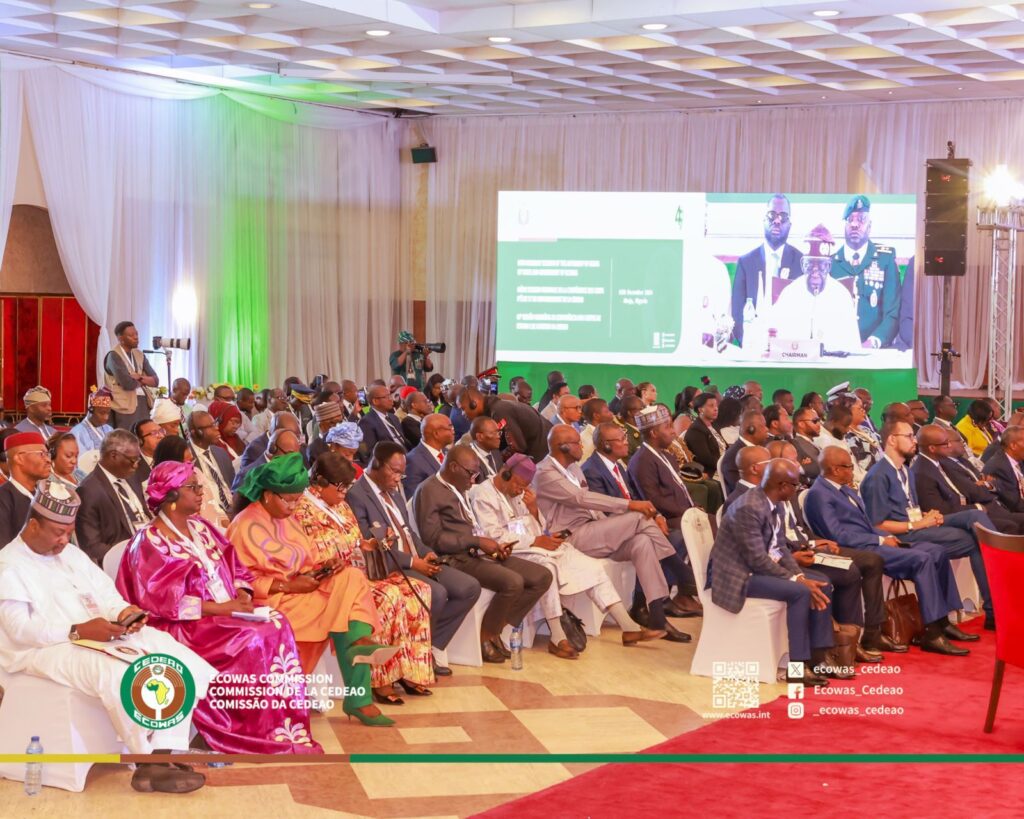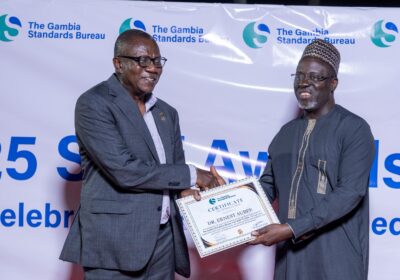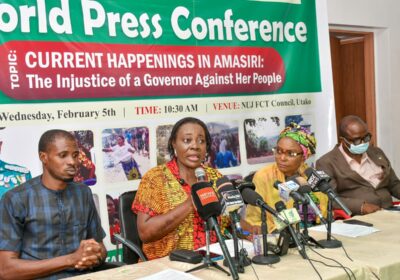ECOWAS Concludes 66th Extraordinary Summit in Abuja, Approves Exit Timeline for Niger,Burkina Faso and Mali
Raymond Enoch
The Economic Community of West African States (ECOWAS) concluded its 66th Extraordinary Summit in Abuja, Nigeria, on December 15, 2024, with significant decisions impacting the regional bloc’s composition and future direction.
The Summit which was declared opened by the President of the Federal Republic of Nigeria, President Bola Ahmed Tinubu brought together Heads of States of ECOWAS region, Chairman of the African Union Commission, Parliamentary members of the ECOWAS Commission, Ambassadors , Representatives of Specialized Institutions of the ECOWAS Commission, Partners and considered far reaching decisions impacting on the Commission.
Nigeria’s President and Chairman ECOWAS Commission of Heads of States and Government in his opening remarks at the Summit recounted the objectives of ECOWAS. citing the Lagos Treaty of 1975, which said that ‘The strength of our region lies in our unity, and through integration, we can overcome our challenges and chart a path towards shared prosperity.’

He also said 66th Summit reaffirms the founding principles of ECOWAS established to promote economic integration, peace and prosperity for the region through cooperation and solidarity. while affirming that ” ECOWAS was born out of a shared vision to create a community where our citizens can thrive, unhindered by conflict, poverty, or inequality”
President Bola Ahmed Tinubu commended Ghana for its recent peaceful elections, describing them as a model of democratic maturity and national unity. He urged other West African nations to draw inspiration from Ghana’s example to ensure political stability and democratic governance across the region..

According to President Tinubu “ECOWAS has achieved significant milestones in strengthening regional integration, facilitating free movement of people, goods, and services, and supporting democratic governance and conflict resolution. Initiatives such as the ECOWAS Trade Liberalization Scheme (ETLS), the Common External Tariff (CET), and the ECOWAS Investment Code (EIC) have bolstered economic cooperation and cross-border trade”
President Tinubu further said that the world is confronted with numerous challenges, ranging from the crisis in Middle East to protracted civil war in Sudan and Libya, and the persistent insecurity and violent extremism in the Sahel region. Coupled with economic instability, cost of living crisis and environmental challenges, these crises have led to widespread humanitarian suffering. Many of the challenges are not distant, they are close to us or have already impacted our region, posing, saying that it is ” a test to our ability to evolve effective community based responses.” he asserted.
President Tinubu hinted hinted on the activation of the ECOWAS Standby Force, saying that ” it “underscore our commitment to building a robust and rapid response mechanism capable of addressing emerging threats and maintaining stability across the region”
He congratulated Madam Shirley Ayokor Botchwey who will be assuming duty as the Secretary General of Commonwealth Secretariat and wishes her a successful tenure.
ECOWAS Commission President H. E Dr. Omar Alieu Touray in his address at the Summit applauded President Bola Ahmed Tinubu leadership as ECOWAS Chairman for his statemenshio and generosity on behalf of the people of Nigeria to the Commission.
He commended Ghana and Senegal for their peaceful Presidential and Parliamentary Elections, noting that it’s ” an enduring culture” that would be consolidated.
He announced the ECOWAS Future Summit scheduled for March 2025 and hinted that several events would take place across member countries to mark the 50th anniversary of the establishment and founding of the ECOWAS Commission
He described the exit of Niger Burkina Faso and Mali from the Commission as disheartening, while also recounting the security Challenges ECOWAS Community has been faced with .
In his speech, President Touray also highlighted the importance of upholding democratic principles and the rule of law within the region. He called for collective action to address the challenges posed by the recent political changes in the three countries, emphasizing the need for a balanced approach that respects the sovereignty of member states while maintaining the core values of ECOWAS.
Paradigm News reports that the key outcome of the summit was the formal approval of the withdrawal of Niger, Mali, and Burkina Faso from the Economic Community of West African States (ECOWAS). The three countries had previously announced their intention to exit the organization, citing dissatisfaction with ECOWAS’s handling of recent political upheavals and sanctions. In response, ECOWAS has set a transitional period from January 29, 2025, to July 29, 2025, during which the three nations can reconsider their decision. During this period, ECOWAS will keep its doors open to the departing countries, with ongoing mediation efforts led by Senegalese President Bassirou Diomaye Faye and Togolese President Faure Gnassingbé.
The 66th Extraordinary Summit took many pivotal decisions aimed at reshaping the organization’s future and reinforcing its commitment to justice, democracy, and regional integration.
It remains however unclear to the citizens of the Sub Region where the implications and decisions reached at the end of the Summit might mean to the stability,peace and security of the ECOWAS Community.
Some experts who spoke to the Paradigm News expressed deep concern about the decision taken on the AES Countries , saying that what the Summit simply did was to dismantle the 50 years of the existence of ECOWAS Regional Economic Community as a critical bloc in deepening development in West Africa. Some say that the decision is hasty and one that would further widen rift in diplomatic channels in ensuring peace in the Sub Region.










